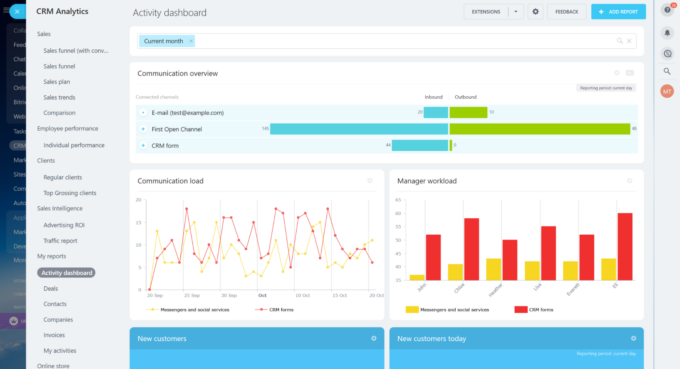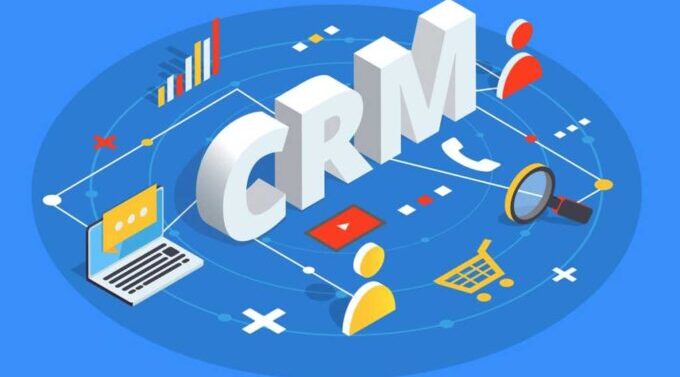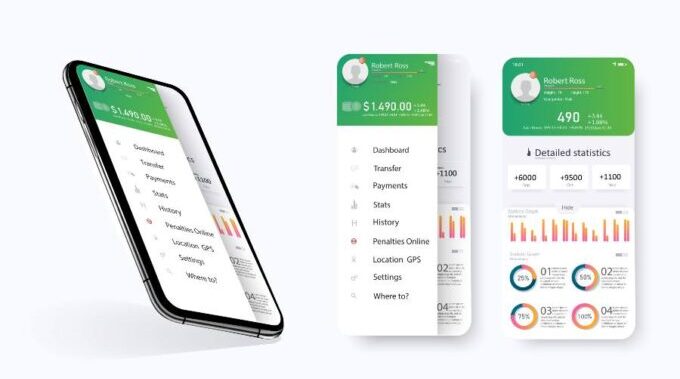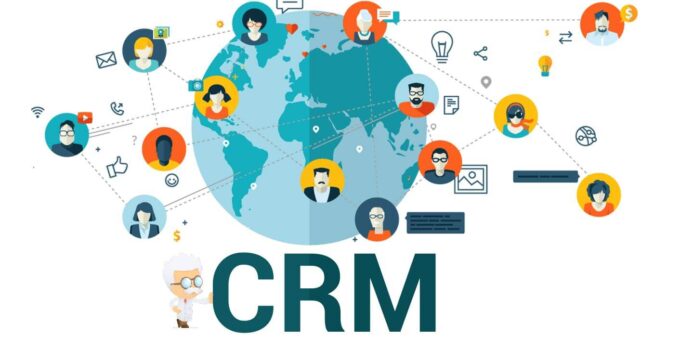In the fast-paced world of business, maintaining effective customer communication becomes a challenge as companies expand their customer base. With a growing clientele, sales managers often find it increasingly difficult to keep track of pertinent correspondences, leading to delayed responses to new inquiries across various platforms. This can result in frustrated customers waiting for extended periods and, in some cases, opting for alternatives offered by competitors.
To address this issue and ensure seamless customer interaction, businesses turn to Customer Relationship Management (CRM) solutions. By streamlining communication, CRMs play a vital role in retaining leads, fostering customer loyalty, and maximizing operational efficiency.
When a company has many customers, sales managers may lose relevant correspondence and not have time to respond to new requests in the mail and social networks. Customers wait a long time for a response and then leave for competitors. To avoid losing leads and work effectively with existing customers, companies use CRMs. Here’s why the best web-based CRM for small business is the ultimate solution in this situation.
What Is Web-based CRM

Source: zapier.com
A web-based CRM is accessed through a browser rather than being installed on individual computers or servers. This type of CRM allows businesses to store and manage customer data centrally on secure servers while providing access to authorized users from any location with an internet connection. It eliminates the need for expensive hardware installations and offers seamless integration with other business apps.
What Are the Benefits of Using Web-based CRM?
One of the primary advantages of using a web-based CRM is its accessibility. Since it’s hosted on secure servers, authorized users can access critical customer information. This enables a sales team or customer service representatives working remotely or traveling frequently to stay connected and provide excellent service.
Web-based CRMs eliminate upfront costs associated with hardware installations since they are hosted on cloud servers. Furthermore, they offer flexible subscription plans based on usage or number of users, making it more affordable for businesses compared to traditional software licenses.
What’s more, as your business grows and evolves, so does your need for managing customer relationships effectively. Web-based CRMs allow you to easily scale up or down based on your requirements without additional infrastructure investments
Essential Features of CRM

Source: cio.com
The highest-quality web-based CRMs provide robust contact management capabilities, allowing businesses to store and arrange client data, like their names, addresses, phones, and emails. It should also enable companies to track interactions and communication history with each contact
Effective sales pipeline management is essential for businesses to track and manage their sale opportunities efficiently. The best CRMs ensure lead tracking, opportunity management, customizable sales stages, and real-time analytics
Data Security and Privacy
In an era where data breaches and hacks frequently make headlines, the significance of data security and privacy in web-based CRM systems cannot be overstated. These platforms handle a plethora of sensitive customer information—from transaction details to personal preferences.
The most credible CRM systems employ state-of-the-art encryption and employ rigorous security protocols. They ensure that every piece of data is treated with the utmost confidentiality, offering peace of mind to businesses and their clientele. According to a report by Cybersecurity Ventures, cybercrime damages are expected to reach $6 trillion annually by 2021, further accentuating the need for robust data security.
Mobile Accessibility

Source: fitsmallbusiness.com
Today’s fast-paced business landscape demands constant connectivity. Hence, the ability of web-based CRMs to be mobile-friendly becomes paramount. A CRM system optimized for mobile devices ensures that whether it’s sales representatives in the field or customer service agents on the move, everyone remains looped into real-time updates.
According to Statista, over half of global website traffic has been generated through mobile phones since 2017, highlighting the indispensable role of mobile optimization in CRMs.
Customization and Integration
No two businesses are identical. Recognizing this, contemporary CRM systems offer a suite of customization options. Businesses can fine-tune their CRM interface, features, and analytics tools to align perfectly with their unique operational needs.
But, the true magic lies in integration. A CRM system that can seamlessly integrate with other core business tools—like email marketing platforms or project management apps—simplifies processes and fosters efficiency.
AI and Automation

Source: b5digital.dk
Modern web-based CRMs have embraced the potential of Artificial Intelligence (AI) and automation. The integration of these technologies transforms the CRM from a mere organizational tool to a powerful analytical machine.
From intelligently scoring leads based on potential conversion probabilities to offering predictive analytics on sales trends, AI-enhanced CRMs are game-changers. Routine tasks, like data entry or follow-up reminders, become automated, allowing teams to focus on what truly matters: building customer relationships.
Collaboration and Team Coordination
Effective team collaboration is the backbone of any successful venture. Web-based CRMs act as a centralized hub where team members can share critical updates, insights, and customer feedback. With real-time data sharing and collaboration tools, these platforms bridge communication gaps and ensure everyone is on the same page.
Customer Insights and Analytics

Source: custify.com
Understanding customers is the cornerstone of any business strategy. Web-based CRMs offer invaluable insights into customer behaviors, buying patterns, and preferences. By dissecting and analyzing these trends, businesses can craft tailored marketing strategies, offer personalized solutions, and predict future sales trajectories with greater accuracy.
User Training and Support
Adopting a new system can be daunting. Recognizing this, top-tier CRM providers prioritize user training and ongoing support. They offer comprehensive training modules, webinars, and dedicated support teams to assist businesses in their CRM journey. After all, a tool is only as effective as its user’s ability to wield it.
Top-reviewed web-based CRMs
These CRMs offer the greatest opportunities for businesses and their customers:
- Salesforce. Known as the industry leader in CRM solutions, Salesforce offers a feature-rich web-based CRM platform that caters to businesses of all sizes across various industries.
- HubSpot. This free web-based system is popular among small businesses due to its user-friendly interface and seamless integration with other HubSpot tools.
- Zoho. This provider offers a comprehensive suite of web-based business applications, such as its CRM solution with advanced features for a low price.
More and more CRM products are released on the market, bringing more opportunities to their customers. If your business is real estate-based, you may want to check out our article explaining CMR’s importance in the real estate business and see for yourself how can you unlock its true power.







